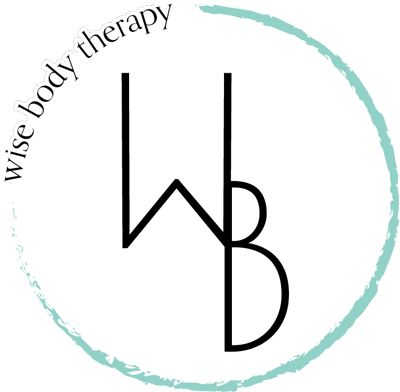Intuitive Eating Counseling in Phoenix, AZ
Ready to make peace with food and your body?
Here’s How Intuitive Eating Counseling Works
Intuitive Eating counseling works by reconnecting you to your body’s intuitive wisdom. Here’s an example of your body’s wisdom. You don’t have to tell your body to have an immune response. It just knows. Lungs breathe, and hearts beat. Yet we tend to forget that this same wisdom is available as it relates to food and the size our body wants to be.
You were born eating this way.
Next, think about a baby eating. They know when they’re hungry and tell us by crying. Babies know when they’re done eating; they fall asleep or start playing. So you see, we were born eating this way – nobody had to teach us. Our bodies just knew – it was intuitive.
When did you stop eating intuitively?
Nevertheless, many of us got disconnected from the internal cues of our bodies. We may have learned that some foods are “good foods,” and others are “bad foods.” Additionally, we might start to think we are good because we eat good food and we are bad if we eat bad food.
Eventually, tricking our bodies becomes a common practice. When our bodies give us a hunger cue, we might try to trick them into thinking we are not hungry. Finally, we might learn to be in an adversarial relationship with our bodies. Sadly, this thinking undercuts the profound wisdom of our bodies.
Reconnecting with the wisdom of your body
Of course, if we tune into the wisdom of our bodies, we have a treasure trove of information about what we need on a moment-to-moment basis. It starts in the physical realm, but it translates into the emotional realm.

Intuitive Eating counseling, an evidence-based model.
Intuitive Eating is an evidence-based model supported by a large body of research. Additionally, it uses validated assessment tools. It’s weight neutral, which means that a reduction in weight is not the focus. Finally, Intuitive Eating has a set of clearly defined principles that guide the process.
Here’s what I want you to know about Intuitive Eating counseling.
… it’s perfectly normal to enjoy food.
… to access joy and sensory pleasure in other areas of life.
…to respect my body, no matter what size or shape it is.
Once you learned to honor the wisdom of you body as it relates to food, you’ll be more able to hear hear your intuition in other areas of life, such as navigating relationships, boundaries, self-care, and so much more. You’ll connect to the source of empowerment and confidence.

Intuitive Eating Counseling FAQ

What if I gain weight with Intuitive Eating
With Intuitive Eating, you may gain some weight if you were over restricting. You may stay the same weight, and you may lose weight if you were binge eating, or living at a weight higher than your body’s natural setpoint.
Consider though, what if you
- gain freedom
- lose shame and loathing
- gain holistic health (physical & mental health)
- you’re able to participate in aspects of life that you previously avoided
- break a generational cycle of body shaming
What if the permission you give yourself to experience pleasure through your amazing body actually makes your life far more pleasant?
Isn't weight management important for your overall health?
Your health is not nearly as connected to your weight as you’ve been led to believe.
Let’s talk about mortality (risk of death). Geesh, that got dark fast.
If it were healthier to live in a smaller body, people in smaller bodies would live longer, right?
People with larger bodies live as long as normal-weight people. In fact, overweight people have a slightly lower risk of death than normal-weight people.
This question has been addressed in more than 100 studies with a combined total of over a million participants. Katherine M. Flegal combines all that research in this meta-analysis. Traci Mann, Ph.D., also addresses this question in a super reader-friendly way in Secrets from the Eating Lab.
Let’s talk about morbidity (risk of disease).
“Okay,” you might say. “Maybe people in larger bodies don’t die sooner, but they don’t live as healthy of a life. They get heart disease, diabetes, and much more, right?”
Not so much.
It’s complicated, but still, it has far less to do with weight than you’ve been led to believe. Here’s what the research says:
When researchers control for things that the evidence suggests causes health problems, like weight stigma (the very real emotional toll of living in a larger body in a society that gives unwarranted privilege to smaller bodies) and weight cycling (yo-yo dieting), the difference between disease in people with smaller bodies compared to larger bodies is minuscule.
In fact, there’s this thing called the “Obesity Paradox,” which shows us that people in larger bodies with heart disease have better health outcomes than people in smaller bodies with heart disease. The same is true for diabetes, kidney disease, and many others.
Isn't sugar bad for you?
If you’re like me, when you’re curious about something, you google it. I’ve found some great recipes this way, cleaning hacks, and even leads to different communities.
But, if you’re googling questions about health, and specifically sugar, the messages are pretty scary!
Here’s what you might find:
The Sweet Danger of Sugar
11 Reasons Why Too Much Sugar is Bad for You
Eating a High Sugar Diet Can Set You Up for Disease
I don’t know about you, but after reading those titles, my blood pressure and blood sugar are rising.
We’ve been told that research supports the claim that too much sugar is bad for you. And it does. But “high sugar” is something completely different than you might think.
Here’s what high sugar looks like in the research:
“The equivalent of at least 7.5 regular-size candy bars every day” (Harrison, 2019, p. 234).
So then, how is low sugar defined in the research (the lowest health risk category)?
It’s some sweetened foods at every meal (for example, fruit, sweetened granola, sweetened bread, honey-roasted nuts, trail mix, sweetened salad dressing) and every snack, and having dessert every day (like a regular-size candy bar or a bakery cookie) (Harrison, 2019).
These are the people with the lowest risk.
Interesting right?
Finally, when I dug into the citations for the article above –11 Reasons Why Too Much Sugar is Bad for You—in just reason 1, there were many flaws with the citations. One of the studies was not even relevant to the argument that sugar is terrible and instead looked at fructose versus glucose (both sugars). The next citation was one study on rats. For something to be accepted as evidence-based, it needs to be repeated in research over and over. Additionally, while rat research is a place to start, it’s not the same as human research. Finally, one article implied cause, but the claims were only correlational without appropriate controls.
Here’s the take-home message.
-
When something says, “studies show,” it doesn’t mean much.
-
One of the best things you can do for your health is not to cut sugar. Why? Because restricting will only lead to more obsessing over sugar in the long run. Instead, heal your relationship with food, and the urgency around sweet things declines.
What are the benefits of Intuitive Eating
Here are the benefits of Intuitive Eating according to over a hundred studies:
- Higher self-esteem
- Improved digestion
- Decreased anxiety around food
- Improved cholesterol
- Reduced stress levels
- Improved body image
- Weight stabilization (no more weight cycling)
- Decreased emotional eating and binge eating
- Increased mindfulness and self-compassion
- Improved body satisfaction
Many people discover they no longer spend so much time, energy, and money stressing about how to be healthy. Health can be second nature. Intuitive.
Many people are able to give that energy to things that bring their life joy (spending time with family, friends, work, self-care, hobbies, and so much more). They may have a joyful relationship with food, mind, and body that’s nourishing, not punishing.
Individual Counseling Services From Wise Body Therapy:
- EMDR
- Trauma Focused
- Cognitive Behavioral (CBT)
- Compassion Focused
- Mindfulness-Based (MBCT)
- Person-Centered
- Somatic
- Strength-Based
Populations We Serve with Individual Therapy and Counseling Services:
- Adults
- Teens
- All genders
Wise Body Therapy is a Safe Place For All:
- Heath at Every Size (HAES) aligned
- Polyamorous allied
- Sex Worker Allied
- Racial Justice Allied
- GLBTQIA+ Allied
- HIV / AIDS Allied
- Single Parent Allied
- Little Person Allied
- Law enforcement/First responders/Child Welfare workers

Counseling Services Are Offered For These Issues and More:
- Trauma and PTSD
- Secondary traumatic stress for first responders, child welfare investigators and case managers, probation/parole officers, and so forth.
- Eating Disorders
- Anxiety
- Addiction
- Alcohol Use
- Anger Management
- Codependency
- Coping Skills
- Depression
- Faith deconstruction and purity culture reconstruction
- Family Conflict
- Self Esteem
- Sexual issues
- Spirituality
- Stress
- Substance Use
- Women's Issues
Let's talk.
Schedule your FREE 30-minute discovery call.
